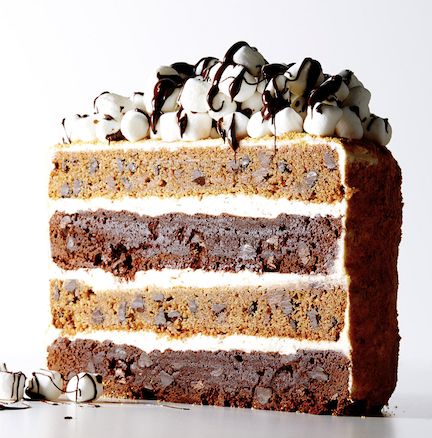Keeping Our Eyes on the Banner of Freedom
When the Americans first occupied Manila, many prisoners that had been imprisoned for "political offenses" were set free. One of these crimes, according to the Spanish government, which then ruled the Philippines, was reading the Bible. One day a man came to famed Christian missionary Dr. Homer Stuntz, and asked to see him in strict privacy. He then asked in a whisper if it were true that he could now read his Bible without danger of imprisonment. Dr. Stuntz took him to the door and asked him to look at the American flag floating near by. Then he said, "So long as you see that flag floating over your country, you can sit on the ridgepole of your house, if you want to, and read the Bible, and no one can molest you."

Surely the American flag -- the banner of our freedom -- can offer one measure of assurance. Yet there is an infinitely (and eternally) greater banner under which we can claim not just our freedom, but our boldness to excercise such freedom, and that is the Cross of Christ. It is the symbol of our freedom from the bondage of the world, the flesh, and the devil. And it is likewise the symbol of our calling to boldly persist against pressure, persecution, and even penalty.
"It is for freedom that Christ has set us free. Stand firm, then, and do not let yourselves be burdened again by a yoke of slavery" (Galatians 5:1, NIV).
"So if the Son sets you free, you will be free indeed" (John 8:36, NIV).
Old Testament Martial Arts
In a really insightful Facebook Reel, Bible teacher Mike Winger evokes memories of the famous "wax on, wax off" scenes from the 80s cult classic movie The Karate Kid to help illustrate how the development and study of the Old Testament helps prepare us in understanding the New.
When Mr. Miyagi asked Daniel-son to wax on and wax off and to paint the fence he makes him do it in a specific way, right? You can’t just wax on, wax off. No, no. You have to do it like this [Miyagi shows Daniel-son the exact motion]. … Then one day he just flips out, and ahhh, I hate this, this is the dumbest thing … ta da … Mr. Miyagi just starts attacking him. And so Daniel-son responds, doing his what? Wax on, wax off! And all of a sudden he realizes, like, oh, these are like blocks and stuff, like I’m, I learned how to fight karate!

But I think that what we have to do is look at the Old Testament, as our first time through it, as … like you’re just learning how to, like, paint the fence, wax on, wax off. And you may not fully get the reasoning of all that yet, but you get it in you so that [when] you come to the New Testament you can just explode with understanding of both the New and the Old.
Click here to watch the clip
He conclues,
Think about it this way. If there had been no Old Testament, no Passover, no prophecies, [and] Jesus shows up, dies on the cross … Nobody gets it! There needed to be this period of revelation to prepare people for Jesus Christ, to make sense of who He was.
"For if you believed Moses, you would believe me; for he wrote of me" (John 5:46, ESV).
"And beginning with Moses and all the Prophets, he interpreted to them in all the Scriptures the things concerning himself" (Luke 24:27, ESV).
The Richness of Scripture
If dessert makes you feel bad afterwards, someone did something wrong - and it wasn’t you. That is to say, rich desserts do not have to be heavy.
According to Chef Jeremy of MissoulaCakes.com, we can have all the yums without the gut bomb often associated with desserts. He says the trick is two-fold: layers and contrast. He claims that the full yum experience means having multiple layers with different textures.

As an example, he uses the scene from Willy Wonka where Violet is chewing the magical gum which transforms from turkey to stuffing and all the sides, then blueberry pie.
When a layered cake is done right, we can experience all of the richnes of the contrasting flavor distinctions, without the need for more fat and sugar.
Scripture is like a well crafted cake, rich and full of layers and textures — everything from biblical history, the Law, and prophecy, to poetry and proverbs, filled beginning to end with moral and eccelsiastical instruction, all layered with measures of personal, communal, and even global admonition and instruction.
Some might find that all a bit "heavy" to consume. Yet the Word of God is crafted so perfectly that it fills our lives with richness, with fullness, without any of the bloat. It is meant to be savored, consumed, and digested.
To that end, Paul admonishes us to embrace the whole of scripture, with all it's richness and many textures, so that it might have its fullest impact on our lives. We can experience all of its intended nourishment without feeling heavy. And like a delectible dessert shared among friends after a lavish meal, we can delight in it with grattitude and praise.
"Let the message about Christ, in all its richness, fill your lives. Teach and counsel each other with all the wisdom he gives. Sing psalms and hymns and spiritual songs to God with thankful hearts" (Colossians 3:16, NLT).
"Oh, taste and see that the LORD is good! Blessed is the man who takes refuge in him!" (Psalm 34:8, NIV).